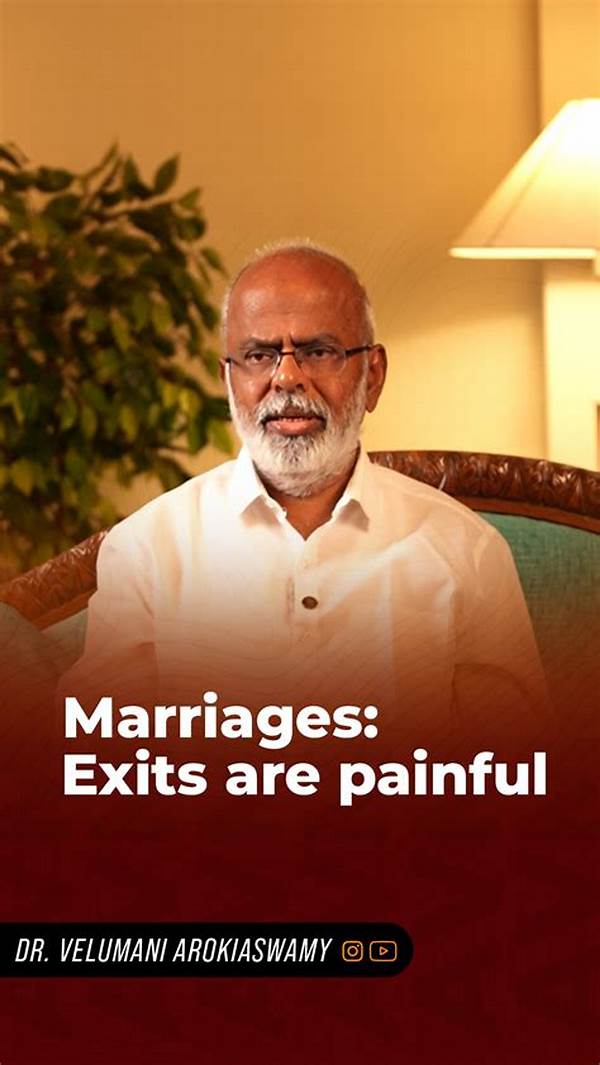In the complex landscape of family dynamics, parental pressure on marriage decisions emerges as a significant factor shaping individuals’ lives. Such pressure can often lead to dilemmas where traditional expectations clash with modern ideals of personal autonomy. This article will explore the intricacies of how parental influence can affect marital choices, the repercussions on individuals, and the broader societal implications.
Read Now : Closing Emotional Distance Between Partners
The Dynamics of Family Influence
Parental pressure on marriage decisions is a multifaceted issue that involves a delicate balance between familial expectations and personal desire. In many cultures, parents hold strong beliefs about suitable matches for their children, shaped by cultural norms, socio-economic status, and community values. These expectations often translate into pressure, which can lead individuals to choose partners aligned more with their parents’ desires than their own preferences. As such, young adults may find themselves at a crossroads, having to decide between conforming to parental wishes or pursuing their own happiness.
This pressure can manifest in several forms ranging from subtle hints and emotional appeals to more direct methods such as ultimatums. Regardless of the form it takes, the impact remains significant. It’s crucial to recognize that while parental guidance can be invaluable, undue pressure can result in stress, frustration, and, in some cases, estrangement from family. These situations highlight the need for open communication and mutual understanding to navigate the complexities surrounding marriage decisions collaboratively.
Factors Contributing to Parental Pressure
1. Cultural Traditions: Deep-rooted cultural norms often dictate marriage choices, with parental pressure reinforcing these traditions.
2. Socio-economic Considerations: Parents may exert pressure based on financial compatibility, believing it ensures a stable future for their children.
3. Family Reputation: Concerns about prestige within the community can lead to pressure to conform to certain matrimonial standards.
4. Emotional Bonds: Strong familial ties might compel individuals to prioritize parental preferences over personal desires.
5. Fear of Loneliness: Parents might fear their children remaining unmarried, leading to pressure towards timely nuptials.
Consequences of Yielding to Parental Pressure
When individuals succumb to parental pressure on marriage decisions, the outcomes can be varied and far-reaching. On a personal level, entering a marriage dictated by external influences rather than personal conviction can lead to dissatisfaction and emotional discontent. Such marriages may lack the foundation of mutual understanding and respect, pivotal elements for a lasting relationship. The potential misalignment in values and aspirations can also contribute to marital discord, ultimately increasing the likelihood of separation or divorce.
On a broader scale, societal implications are also profound. A trend towards marriages primarily driven by parental pressure can perpetuate cycles of conformity and stifle social progress. It can propagate outdated norms that limit individual freedoms and hinder the evolution of more egalitarian societal structures. Addressing the issue requires educating families and societies on the importance of respecting individual agency while preserving cultural heritage and values.
Navigating Parental Pressure on Marriage Decisions
1. Open Dialogue: Cultivating an environment of transparency can mitigate misunderstandings and foster mutual respect in marriage decisions.
Read Now : Literary Imagery In Medieval Verses
2. Setting Boundaries: Individuals must assert personal boundaries to balance familial advice with personal desires effectively.
3. Support Systems: Leveraging external support such as counseling can aid individuals in managing familial expectations.
4. Cultural Sensitivity: Approaching conversations with an understanding of cultural significance can ease tensions and promote balanced decisions.
5. Promoting Independence: Encouraging young adults to explore personal aspirations can mitigate the influence of parental pressure.
The Path Forward: Fostering Autonomy and Respect
In addressing the issue of parental pressure on marriage decisions, it is crucial to cultivate a culture of autonomy while respecting familial bonds. Encouraging individuals to articulate and pursue their own aspirations, while also engaging in constructive dialogue with their parents, can lead to healthier, more fulfilling marriage choices. Families play an essential role in this paradigm, as they must learn to adapt and respect the evolving notions of independence and individual choice.
Promoting educational programs that focus on communication skills and conflict resolution can also be instrumental. These programs would equip both parents and children with the tools needed to navigate complex discussions about marriage decisions. Society as a whole must also play its part by advocating for policies and cultural shifts that support individual freedom in making significant life choices, such as marriage. With these efforts, a more balanced approach can be achieved, where the wisdom of older generations harmoniously coexists with the aspirations of the younger ones.
Conclusion: Balancing Tradition with Personal Choice
Parental pressure on marriage decisions reflects a broader societal challenge of balancing tradition with modern values. It demands a nuanced approach that respects heritage while fostering personal growth. By understanding the roots of these pressures and addressing them through dialogue and education, individuals and families can work towards a future where marriage decisions are guided by love, mutual respect, and shared aspirations. In doing so, a harmonious blend of tradition and personal fulfillment can be achieved, paving the way for healthier familial relationships and stronger societal structures.
